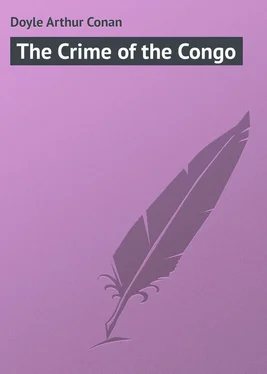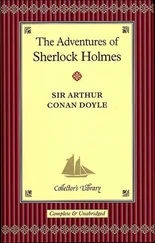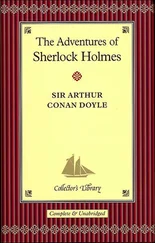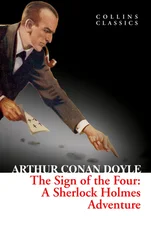Arthur Doyle - The Crime of the Congo
Здесь есть возможность читать онлайн «Arthur Doyle - The Crime of the Congo» — ознакомительный отрывок электронной книги совершенно бесплатно, а после прочтения отрывка купить полную версию. В некоторых случаях можно слушать аудио, скачать через торрент в формате fb2 и присутствует краткое содержание. Жанр: foreign_prose, на английском языке. Описание произведения, (предисловие) а так же отзывы посетителей доступны на портале библиотеки ЛибКат.
- Название:The Crime of the Congo
- Автор:
- Жанр:
- Год:неизвестен
- ISBN:нет данных
- Рейтинг книги:5 / 5. Голосов: 1
-
Избранное:Добавить в избранное
- Отзывы:
-
Ваша оценка:
- 100
- 1
- 2
- 3
- 4
- 5
The Crime of the Congo: краткое содержание, описание и аннотация
Предлагаем к чтению аннотацию, описание, краткое содержание или предисловие (зависит от того, что написал сам автор книги «The Crime of the Congo»). Если вы не нашли необходимую информацию о книге — напишите в комментариях, мы постараемся отыскать её.
The Crime of the Congo — читать онлайн ознакомительный отрывок
Ниже представлен текст книги, разбитый по страницам. Система сохранения места последней прочитанной страницы, позволяет с удобством читать онлайн бесплатно книгу «The Crime of the Congo», без необходимости каждый раз заново искать на чём Вы остановились. Поставьте закладку, и сможете в любой момент перейти на страницу, на которой закончили чтение.
Интервал:
Закладка:
One of the early acts was enough to make observers a little thoughtful. It was the announcement of the right to issue laws by arbitrary decrees without publishing them in Europe. There should be secret laws, which could, at any instant, be altered. The Bulletin Officiel announced that “Tous les Actes du Gouvernement qu’il y a intérêt à rendre publics seront insérés au Bulletin Officiel .” Already it is clear that something was in the wind which might shock the rather leathery conscience of a European Concert. Meanwhile, the organization of the State went forward. A Governor-General was elected, who should live at Boma, which was made the capital. Under him were fifteen District Commissaries, who should govern so many districts into which the whole country was divided. The only portion which was at that time at all developed was the semi-civilized Lower Congo at the mouth of the river. There lay the white population. The upper reaches of the stream and of its great tributaries were known only to a few devoted missionaries and enterprising explorers. Grenfell and Bentley, of the Missions, with Von Wissman, the German, and the ever-energetic Stanley, were the pioneers who, during the few years which followed, opened up the great hinterland which was to be the scene of such atrocious events.
But the work of the explorer had soon to be supplemented and extended by the soldier. Whilst the Belgians had been entering the Congo land from the west, the slave-dealing Arabs had penetrated from the east, passing down the river as far as Stanley Falls. There could be no compromise between such opposite forces, though some attempt was made to find one by electing the Arab leader as Free State Governor. There followed a long scrambling campaign, carried on for many years between the Arab slavers on the one side and the Congo forces upon the other – the latter consisting largely of cannibal tribes – men of the Stone Age, armed with the weapons of the nineteenth century. The suppression of the slave trade is a good cause, but the means by which it was effected, and the use of Barbarians who ate in the evening those whom they had slain during the day, are as bad as the evil itself. Yet there is no denying the energy and ability of the Congo leaders, especially of Baron Dhanis. By the year 1894 the Belgian expeditions had been pushed as far as Lake Tanganyika, the Arab strongholds had fallen, and Dhanis was able to report to Brussels that the campaign was at an end, and that slave-raiding was no more. The new State could claim that they had saved a part of the natives from slavery. How they proceeded to impose upon all of them a yoke, compared to which the old slavery was merciful, will be shown in these pages. From the time of the fall of the Arab power the Congo Free State was only called upon to use military force in the case of mutinies of its own black troops, and of occasional risings of its own tormented “citizens.” Master of its own house, it could settle down to exploit the country which it had won.
In the meantime the internal policy of the State showed a tendency to take an unusual and sinister course. I have already expressed my opinion that King Leopold was not guilty of conscious hypocrisy in the beginning, that his intentions were vaguely philanthropic, and that it was only by degrees that he sank to the depths which will be shown. This view is borne out by some of the earlier edicts of the State. In 1886, a long pronouncement upon native lands ended by the words: “All acts or agreements are forbidden which tend to the expulsion of natives from the territory they occupy, or to deprive them, directly or indirectly, of their liberty or their means of existence.” Such are the words of 1886. Before the end of 1887, an Act had been published, though not immediately put into force, which had the exactly opposite effect. By this Act all lands which were not actually occupied by natives were proclaimed to be the property of the State. Consider for a moment what this meant! No land in such a country is actually occupied by natives save the actual site of their villages, and the scanty fields of grain or manioc which surround them. Everywhere beyond these tiny patches extend the plains and forests which have been the ancestral wandering places of the natives, and which contain the rubber, the camwood, the copal, the ivory, and the skins which are the sole objects of their commerce. At a single stroke of a pen in Brussels everything was taken from them, not only the country, but the produce of the country. How could they trade when the State had taken from them everything which they had to offer? How could the foreign merchant do business when the State had seized everything and could sell it for itself direct in Europe? Thus, within two years of the establishment of the State by the Treaty of Berlin, it had with one hand seized the whole patrimony of those natives for whose “moral and material advantage” it had been so solicitous, and with the other hand it had torn up that clause in the treaty by which monopolies were forbidden, and equal trade rights guaranteed to all. How blind were the Powers not to see what sort of a creature they had made, and how short-sighted not to take urgent steps in those early days to make it retrace its steps and find once more the path of loyalty and justice! A firm word, a stern act at that time in the presence of this flagrant breach of international agreement, would have saved all Central Africa from the horror which has come upon it, would have screened Belgium from a lasting disgrace, and would have spared Europe a question which has already, as it seems to me, lowered the moral standing of all the nations, and the end of which is not yet.
Having obtained possession of the land and its products, the next step was to obtain labour by which these products could be safely garnered. The first definite move in this direction was taken in the year 1888, when, with that odious hypocrisy which has been the last touch in so many of these transactions, an Act was produced which was described in the Bulletin Officiel as being for the “Special protection of the black.” It is evident that the real protection of the black in matters of trade was to offer him such pay as would induce him to do a day’s work, and to let him choose his own employment, as is done with the Kaffirs of South Africa, or any other native population. This Act had a very different end. It allowed blacks to be bound over in terms of seven years’ service to their masters in a manner which was in truth indistinguishable from slavery. As the negotiations were usually carried on with the capita, or headman, the unfortunate servant was transferred with small profit to himself, and little knowledge of the conditions of his servitude. Under the same system the State also enlisted its employees, including the recruits for its small army. This army was supplemented by a wild militia, consisting of various barbarous tribes, many of them cannibals, and all of them capable of any excess of cruelty or outrage. A German, August Boshart, in his “Zehn Jahre Afrikanischen Lebens,” has given us a clear idea of how these tribes are recruited, and of the precise meaning of the attractive word “libéré” when applied to a State servant. “Some District Commissary,” he says, “receives instructions to furnish a certain number of men in a given time. He puts himself in communication with the chiefs, and invites them to a palaver at his residence. These chiefs, as a rule, already have an inkling of what is coming, and, if made wise by experience, make a virtue of necessity and present themselves. In that case the negotiations run their course easily enough; each chief promises to supply a certain number of slaves, and receives presents in return. It may happen, however, that one or another pays no heed to the friendly invitation, in which case war is declared, his villages are burned down, perhaps some of his people are shot, and his stores or gardens are plundered. In this way the wild king is soon tamed, and he sues for peace, which, of course, is granted on condition of his supplying double the number of slaves. These men are entered in the State books as ‘libérés.’ To prevent their running away, they are put in irons and sent, on the first opportunity, to one of the military camps, where their irons are taken off and they are drafted into the army. The District Commissary is paid £2 sterling for every serviceable recruit.”
Читать дальшеИнтервал:
Закладка:
Похожие книги на «The Crime of the Congo»
Представляем Вашему вниманию похожие книги на «The Crime of the Congo» списком для выбора. Мы отобрали схожую по названию и смыслу литературу в надежде предоставить читателям больше вариантов отыскать новые, интересные, ещё непрочитанные произведения.
Обсуждение, отзывы о книге «The Crime of the Congo» и просто собственные мнения читателей. Оставьте ваши комментарии, напишите, что Вы думаете о произведении, его смысле или главных героях. Укажите что конкретно понравилось, а что нет, и почему Вы так считаете.












